Mugabe Loses Touch with Reality
http://www.iwpr.net/?p=acr&s=f&o=326120&apc_state=henpacr
Mugabe sweeps through Harare in a gas-guzzling limousine and has his own ambulance, while ordinary people are ferried to hospital in pushcarts and wheelbarrows.
By Promise Gondo in Harare (AR No. 87, 13-Dec-06)
“Eish! Here come Bob and the Wailers,” laugh Harare wits as President Robert Mugabe's massive motorcade approaches.
It is a play on Jamaican reggae group Bob Marley and the Wailers, much admired by Zimbabweans, and the ironic nickname, Uncle Bob, they give to the octogenarian head of state.
You can hear Bob and the Wailers approaching from three kilometres away.
First there is the screeching of the sirens of police outriders on high-powered motorcycles. They drive at break-neck speed ordering everyone to move out of the way - quickly! "The driver of every vehicle on the road on which a state motorcade is travelling shall halt his vehicle," state the regulations.
Then the first fleet of cars follows - more than a dozen of them, lights flashing - driving ahead of Mugabe's official armoured limousine, a seven-tonne Mercedes-Benz S600L Pullman, the wags call the “Mugabemobile”.
Mugabe's S600L, as powerful as a Ferrari, was custom-built in Germany at a cost of 550,000 US dollars. Its armour is able to withstand AK-47 bullets, rocket-grenades and landmines. Because it eats up about a litre of fuel per km, it has to be followed on anything but short journeys by a tanker-full of gasoline. The S600L was ordered before the European Union instituted sanctions prohibiting this sort of trade with Mugabe and his cabinet.
Behind the Mugabemobile and the tanker come another dozen vehicles, including an ambulance resembling the "Popemobile" Pope John Paul II brought to Zimbabwe on his visit in the 1980s. Then there are trucks and sports utility vehicles packed with soldiers and bristling with guns.
Top-of-the range Mercedes Benzes, numbering up to fifteen, carry the elite Presidential Guard and plainclothes agents of the much-feared Central Intelligence Organisation. Depending on the occasion, there can be anywhere between 25 and fifty vehicles in the motorcade as Uncle Bob moves around town.
Anyone seeing this display of unfettered authoritarian power for the first time must feel a sense of awe and shock - much as a child is amazed at seeing its first fireworks display on a dark night. The procession leaves State House and sweeps at high speed along to the ruling ZANU PF party headquarters, the airport, or Mugabe's new multi-million dollar palace, a controversial folly financed by the Chinese and Malaysians.
Police motorcycle outriders beat up old people who are not nippy enough to get out of the way of the Mugabe parade. And the sheer noise and extravagance of it leaves ordinary Zimbabweans with a feeling of disgust. In a country with a severe fuel crisis spanning almost a decade, the amount of petrol and diesel used by the presidential motorcade in a single trip is obscene.
Most Zimbabweans do not remember when they last bought fuel from the pump. The fuel they get is mostly purchased from tins and plastic containers on the black market.
The ambulance is a reminder not only of Mugabe's mortality but also of how this former liberator has completely lost touch with reality.
He and his family have an ambulance to themselves. This in a city of nearly three million, where there’s a maximum four working ambulances are available at any one time. Too make matters worse, they charge hefty fees - around a sixth of the average monthly salary. Consequently, many people are taken to hospital in crude pushcarts or wheelbarrows
Mugabe is 83 next February - the life expectancy of Zimbabwean women has dropped to 34, the lowest in the world. In 1975, five years before independence, they could have expected to live to 56, and in the late eighties women's life expectancy had reached 63. For men current life expectancy, according to the World Health Organisation, is 37.
Between three and four thousand people die from AIDS-related illnesses every week. There are not enough anti-retroviral drugs to go round. The majority of people suffering from full-blown AIDS have drifted back to rural areas where the cost of
living is lower but from where they cannot afford monthly trips to the cities to replenish
supplies of life-prolonging drugs.
Nor is there enough food, thanks to the destruction of commercial agriculture, as a consequence of the chaotic spur-of-the-moment land reform programme launched by Mugabe in 2000. Families are increasingly faced with the choice between using all their meagre resources to care for one ill member while the rest starve, or feed the rest and let the sick person die slowly.
The sad thing at funerals these days is not the passing away of a relative but the tragedy of the numberless other relatives who are terminally ill and who have come to witness the burial as if to assure the dead person that they will be together again soon enough. "Azorora", which means the dead person has rested, is now a common saying.
Doctors in Zimbabwe's second city, Bulawayo, went on strike in November to protest against deteriorating health services characterised by widespread shortages of drugs, food and equipment, including ambulance provision. "It has become very difficult to work with basically nothing to use in all departments; it is disappointing to watch patients deteriorating in a hospital, as no help can be given to them," said doctors at the city's two main hospitals, Mpilo Central and United Bulawayo, in a joint statement.
"Doctors took an oath to save lives, and do not want to continue lying to patients that they can do something for them when they know very well there is nothing they can do, as the hospitals can no longer function."
The striking doctors said they were also concerned about the quality and quantity of food being given to patients, and claimed that malnutrition was rampant in government health institutions. At least five patients at the Ingutsheni Mental Hospital in Bulawayo died in November after allegedly being diagnosed with malnutrition. Deputy Health Minister Edwin Muguti confirmed the five deaths at the hospital, but said the authorities had yet to establish the cause.
Meanwhile, as the country collapses around him and its citizens die in droves from hunger, disease and neglect, Mugabe and his Mugabemobile continue their daily motorcade show of force. And God help you if you risk even the slightest hint of protest as the Big Man and his entourage sweeps past - the Mugabe government has passed laws that make it a crime to gesture rudely or curse at his convoy, although it is hard to understand how the president can see or hear anything from behind his tinted, bullet-proof windows.
When frustrated motorists unable to get fuel at a petrol station shouted recently at the passing Mugabe parade to do something about the shortages, heavily armed Presidential Guards stopped and beat them up.
Zimbabweans wonder what the late Marley would make of Uncle Bob's behaviour. At independence celebrations in 1980, the reggae star and his band were guests of honour and sang “Zimbabwe”, dedicated to the liberation struggle. More than 26 years later, Marley's dream for Zimbabweans has still yet to come true.
Promise Gondo is the pseudonym of an IWPR contributor in Zimbabwe.
















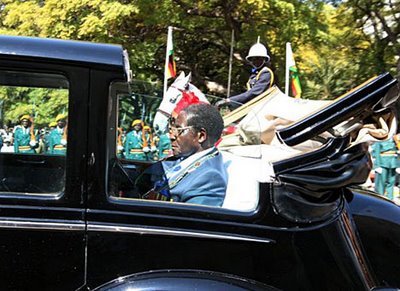

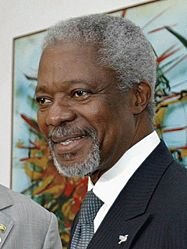

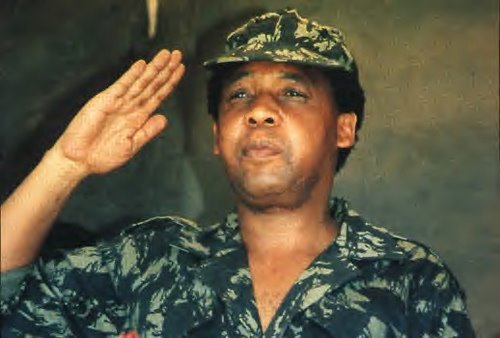

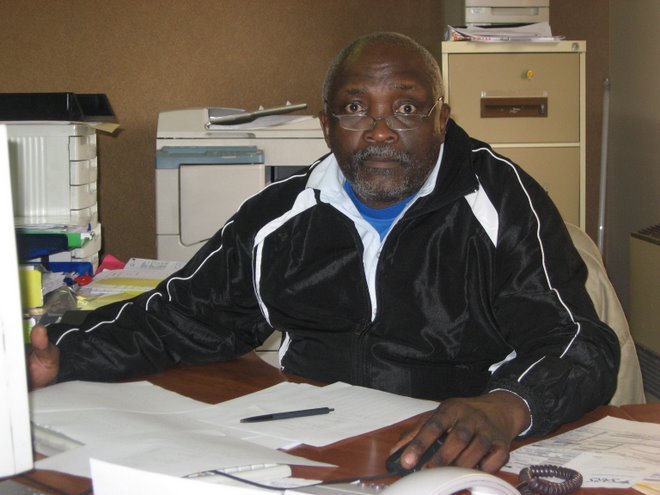

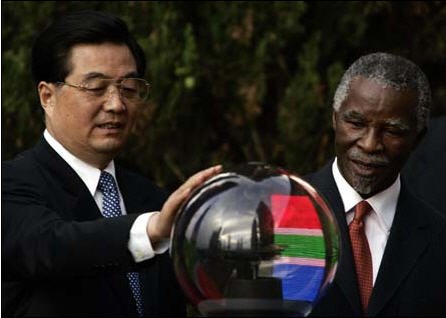





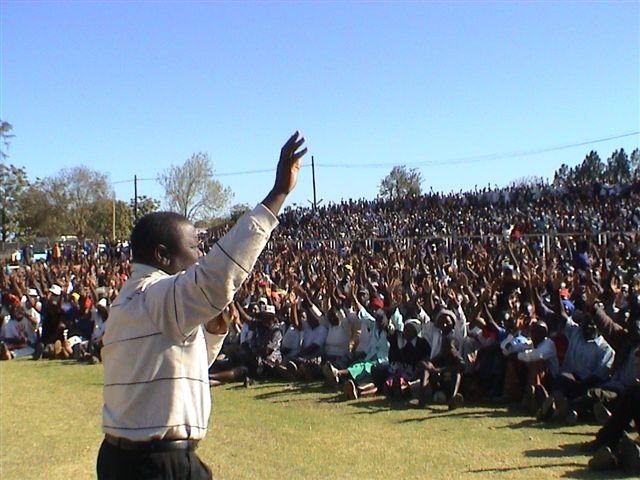


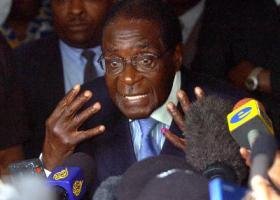

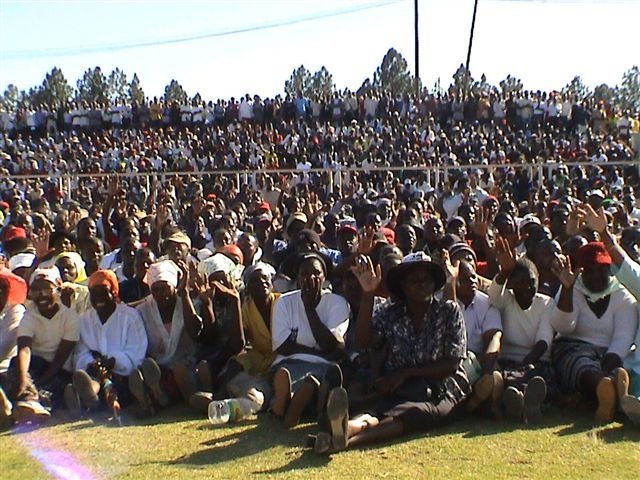
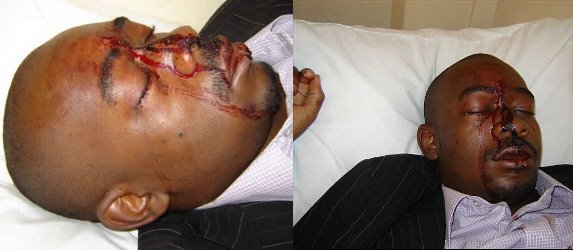
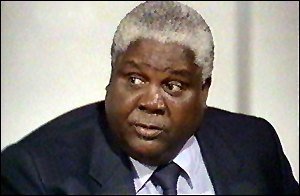



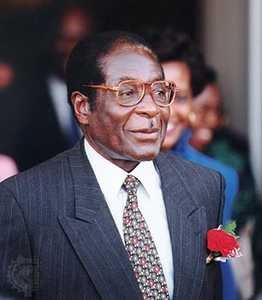

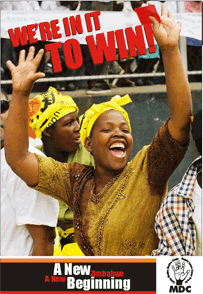

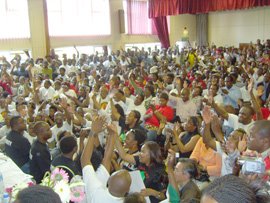






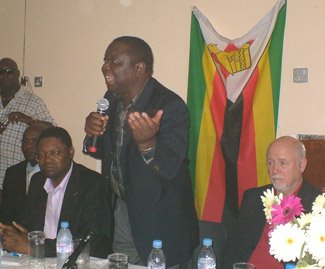

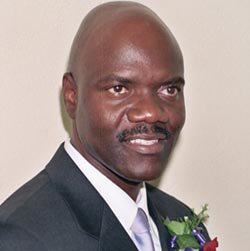







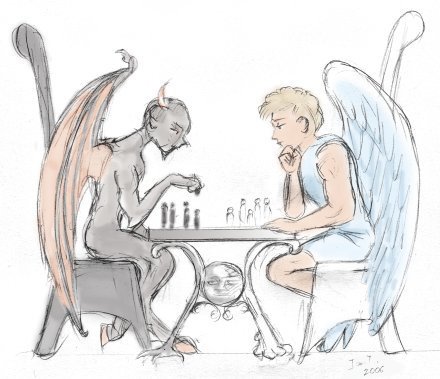

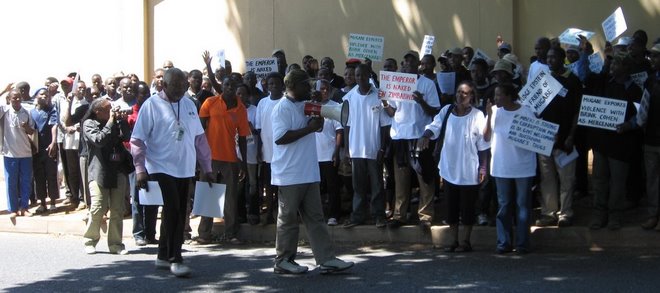
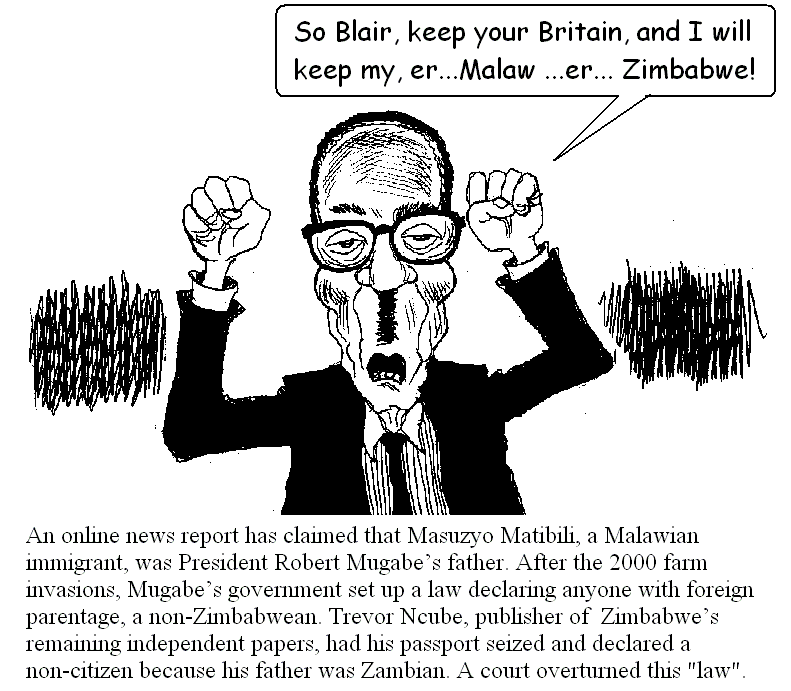
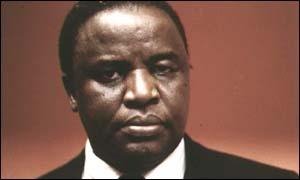
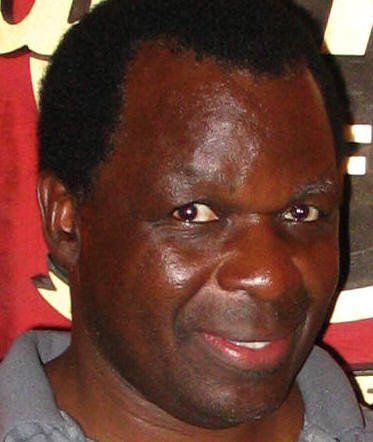





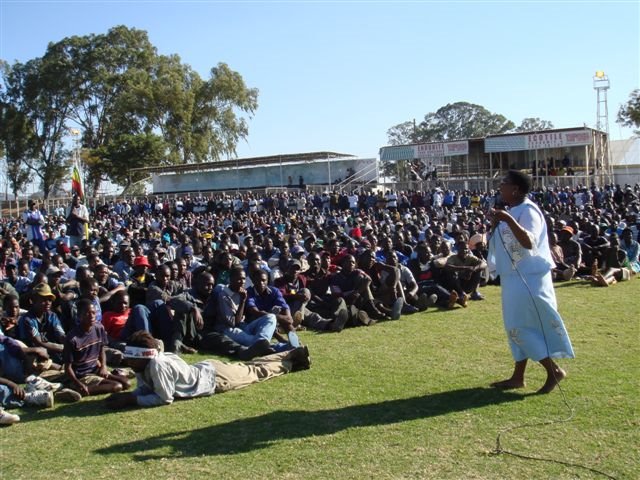

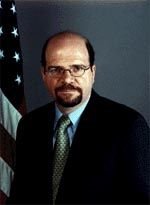

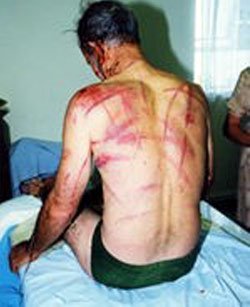
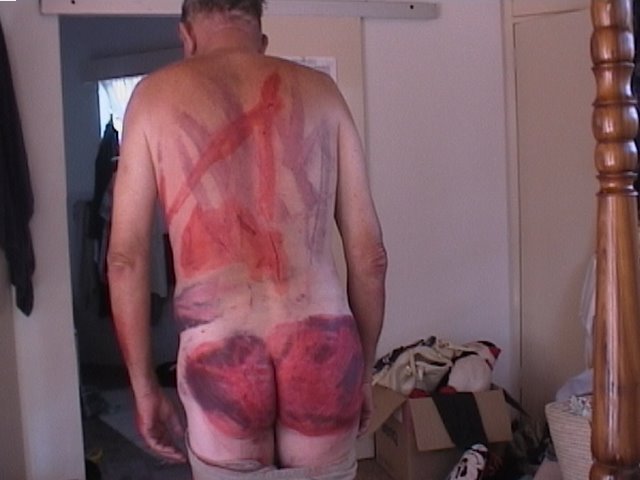

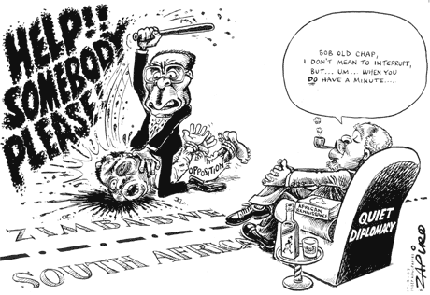
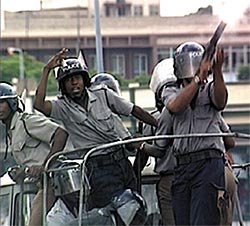
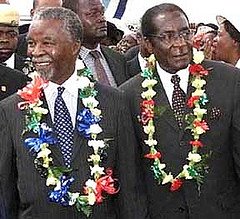
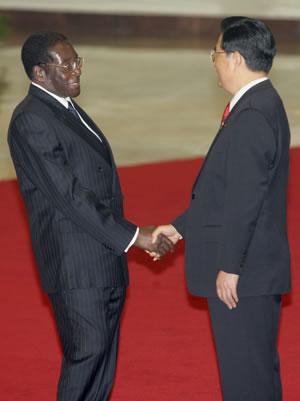





No comments:
Post a Comment